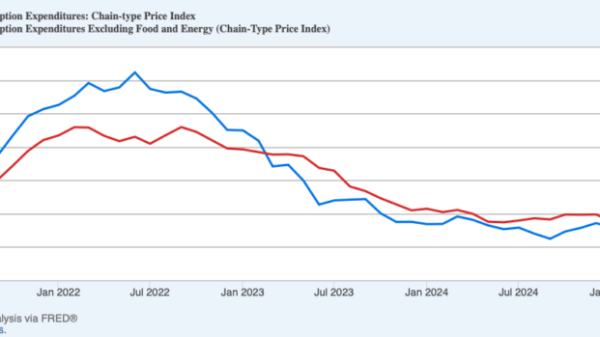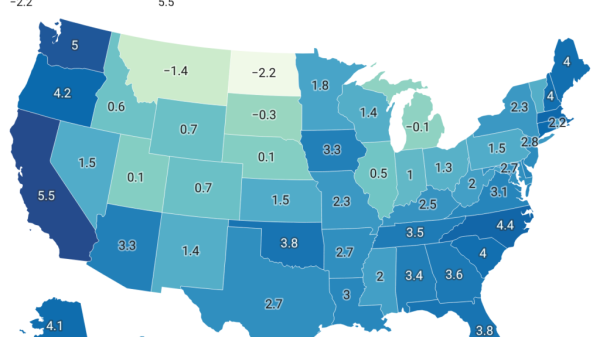The late Peter Drucker is considered the father of modern management theory. Born in Vienna, he was a young lecturer at Frankfurt University early in Hitler’s regime. In his book Adventures of a Bystander (retold in Life in the Third Reich), Drucker recounts the initial Nazi-controlled faculty meeting at Frankfurt University, which occurred shortly after Hitler’s rise to power in 1933.
Drucker sets the stage: “Frankfurt had a science faculty distinguished both by its scholarship and by its liberal convictions; and outstanding among the Frankfurt scientists was a biochemist–physiologist of Nobel-Prize calibre and impeccable liberal credentials.”
The Nazi commissar wasted no time taking charge of the meeting. Drucker remembers the commissar telling the faculty, “Jews would be forbidden to enter university premises and would be dismissed without salary on March 15.”
“Despite the Nazis’ loud anti-Semitism,” the faculty didn’t see that coming.
Vulgarity and threats followed as the commissar “pointed his finger at one department chairman after another and said, ‘You either do what I tell you or we’ll put you into a concentration camp.’”
Silence filled the room; everyone waited for the distinguished scientist and “great liberal” to speak. The liberal rose and said, “Very interesting, Mr Commissar, and in some respects very illuminating: but one point I didn’t get too clearly. Will there be more money for research in physiology?”
The faculty were easily bought with “the commissar assuring the scholars that indeed there would be plenty of money for ‘racially pure science.’” The faculty did not push back. (Anyone who’s spent time in academia shouldn’t be surprised.)
A few men of courage walked “out with their Jewish colleagues, but most kept a safe distance from these men who only a few hours earlier had been their close friends.”
In a state of shock, Drucker resolved to depart Germany within 48 hours, which he did.
Similar events occurred throughout Germany. In his book Hitler’s True Believers, Robert Gellately explains that before 1933, National Socialism already had footholds at the universities.
Shortly after Peter Drucker left Nazi Germany, Gellately reported, “The distinguished physicist Max Planck was asked whether he would like to get involved in a meeting to discuss the treatment of Jewish professors.” Planck answered “meekly that if thirty professors did that, there would be [in Planck’s words] ‘150 people ready to declare their solidarity with Hitler tomorrow, because they want to have those jobs.’” (Planck was not a Jew.)
Gellately concluded, “In their silence the establishment professoriate might be viewed as coming close to complicity.”
The long-term ruin of their lives was the price German professors paid for short-term benefits.
Envy and greed — the desire to get something for nothing — are common human emotions. In Law, Legislation and Liberty, Volume 3, FA Hayek explained, “The morals which maintain the open society do not serve to gratify human emotions.”
Hayek instructs, “Civilization largely rests on the fact that the individuals have learnt to restrain their desires for particular objects and to submit to generally recognized rules of just conduct.”
It was not just academics who lined up to fill jobs held by Jews. Gellately reported that “Medical doctors rushed to join the Nazi Party” as they “coveted the positions of Jewish physicians.”
In his book The Third Reich: A History of Nazi Germany Thomas Childers reported, “All ‘non Aryans’ [were] dismissed immediately from the national, state, and municipal civil service. Jews were no longer allowed to serve as schoolteachers, university professors, judges, or in any other government post.”
In short, before murdering Jews, Nazi Germany ran a proto-DEI program for “Aryans.”
Today, Harvard University, which has been accused of condoning antisemitic activity, has a Jewish student body of less than 5 percent. During the 1970s, as much as 25 percent of Harvard students were Jewish. Modern “progressive” DEI programs have a goal similar to Nazi DEI programs — reduce or eliminate Jewish and white representation from institutions and corporations.
According to Saul Friedländer’s The Years of Extermination, Nazi decrees did not push far beyond what the public would accept. Sentiments of the public and influential entities, such as the church and industry, were considered. Friedländer reported,
Not one social group, not one religious community, not one scholarly institution or professional association in Germany and throughout Europe declared its solidarity with the Jews… many power groups were directly involved in the expropriation of the Jews and eager, be it out of greed, for their wholesale disappearance.”
Sadly, Friedländer concluded, “Nazi and related anti-Jewish policies could unfold to their most extreme levels without the interference of any major countervailing interests.”
Government coercion is required for antisemitism to reach its most damaging consequences.
Childers tells the story of an April 1, 1933, government-supported boycott of Jewish businesses: “Storm Troopers stationed themselves in front of Jewish shops, department stores, and professional offices, menacing anyone who wanted to go inside. They carried anti-Semitic placards and scrawled slogans on Jewish shop windows.”
“Germans, defend yourselves. Don’t buy from Jews,” was among the slogans.
The Nazis, however, were not pleased with the public response to the boycott. Childers reported, “Many customers ignored the boycott, brushing past the SA pickets to shop at Jewish businesses and department stores.” Worse for the Nazis, “some shoppers had even tried to enter a Jewish business by force,” and other “customers had been feverishly stocking up on merchandise from Jewish shops for days prior to the boycott.”
The next day, the boycott was canceled. The Nazis waited to implement more extreme actions.
Childers also reported that in 1933, Germans “still visited their Jewish doctors and lawyers.” Not long after, new edicts resulted in Jewish doctors being allowed to treat only other Jews, a situation which led Jewish doctors to flee Germany or eventually be murdered in concentration camps.
At first, the bonds of commerce proved stronger than Nazi hatred. Yet the Nazis worked tirelessly to eliminate commercial connections — the bonds on which our lives depend.
In his An Enquiry Concerning the Principles of Morals David Hume wrote, “It has often been asserted, that, as every man has a strong connexion with society, and perceives the impossibility of his solitary subsistence, he becomes, on that account, favourable to all those habits or principles, which promote order in society.”
Hume called such an order an “inestimable blessing” that must be maintained by “the practice of justice and humanity, by which alone the social confederacy can be maintained, and every man reap the fruits of mutual protection and assistance.”
In his seminal A Treatise of Human Nature, Hume explained, “The passions [human emotions] are so contagious, that they pass with the greatest facility from one person to another.”
Arguably, a human passion at the root of social disruption is the insatiable desire to be free from necessity. In The Road to Serfdom, Hayek described this desire as a yearning for “release from the compulsion of the circumstances which inevitably limit the range of choice of all of us.”
Our choice is to support politicians who promise the impossible freedom from scarcity, or those who promise freedom from coercion, which is possible. Freedom from coercion comes with all the choices and responsibilities we bear under a liberal form of government.
Liberty cuts off the coercive power of government to “satisfy our wishes,” as Hayek wrote in The Constitution of Liberty. Human nature causes some wish to use illiberal means to obtain what they desire. Liberty, freedom from coercion, offers the most effective solution to the dangerous escalation of antisemitism.



























